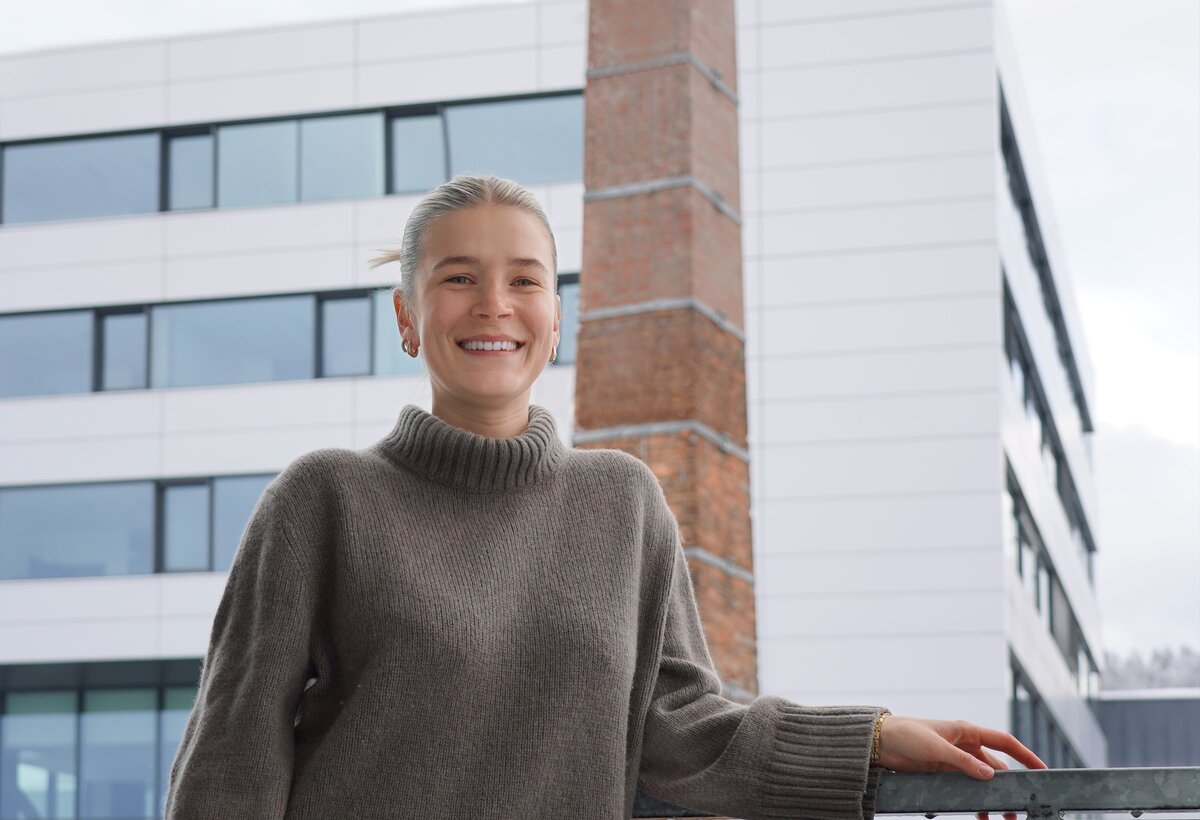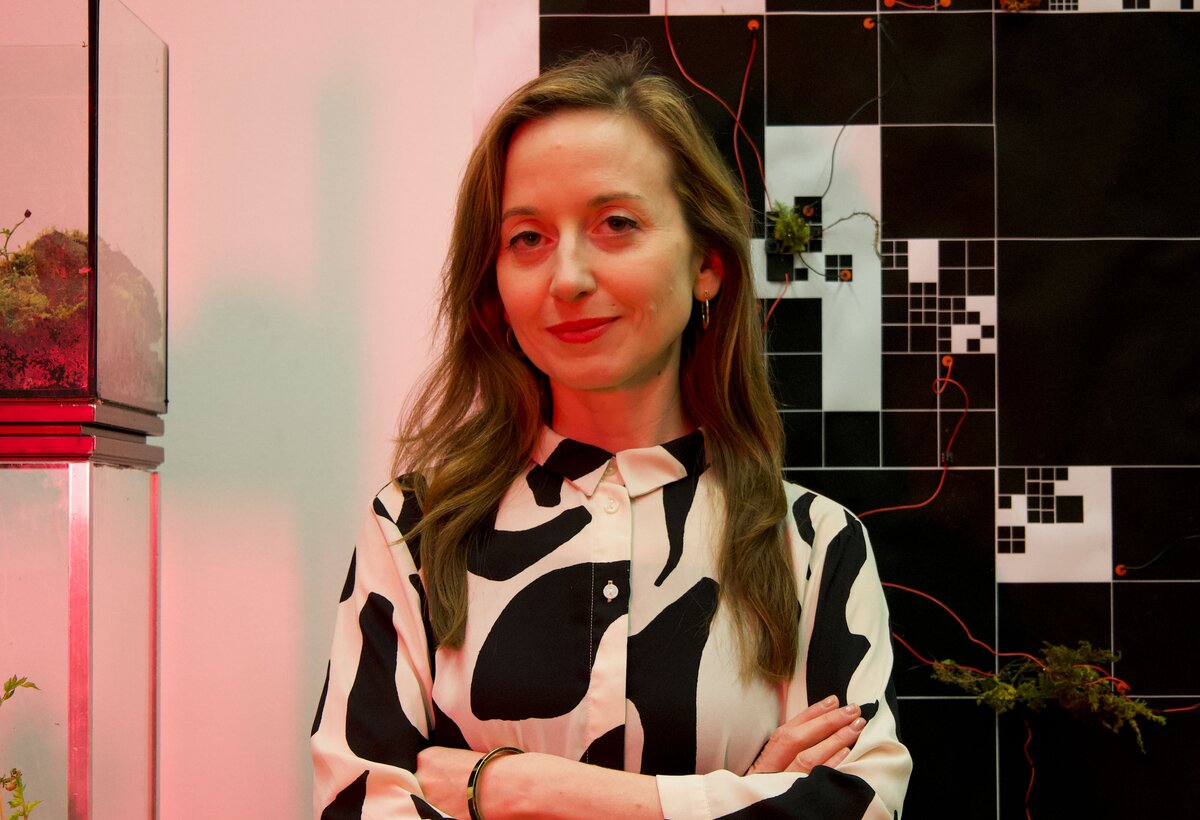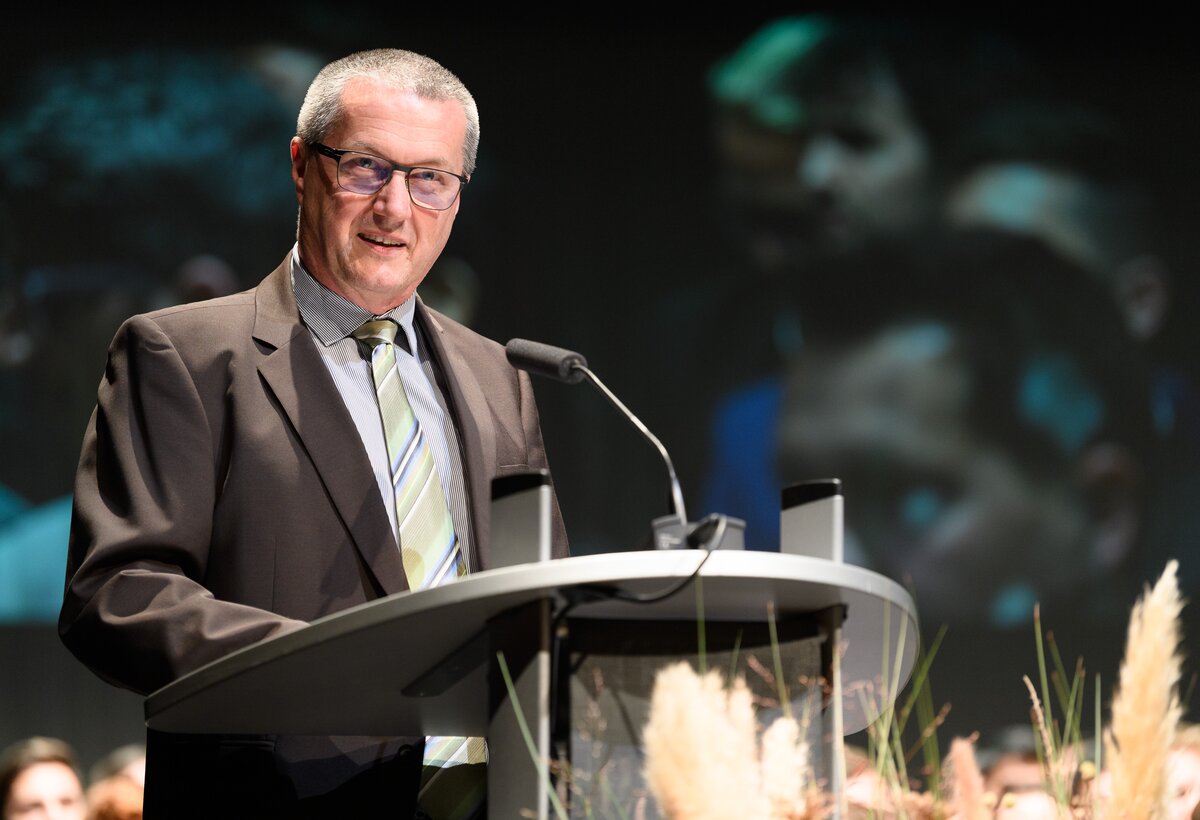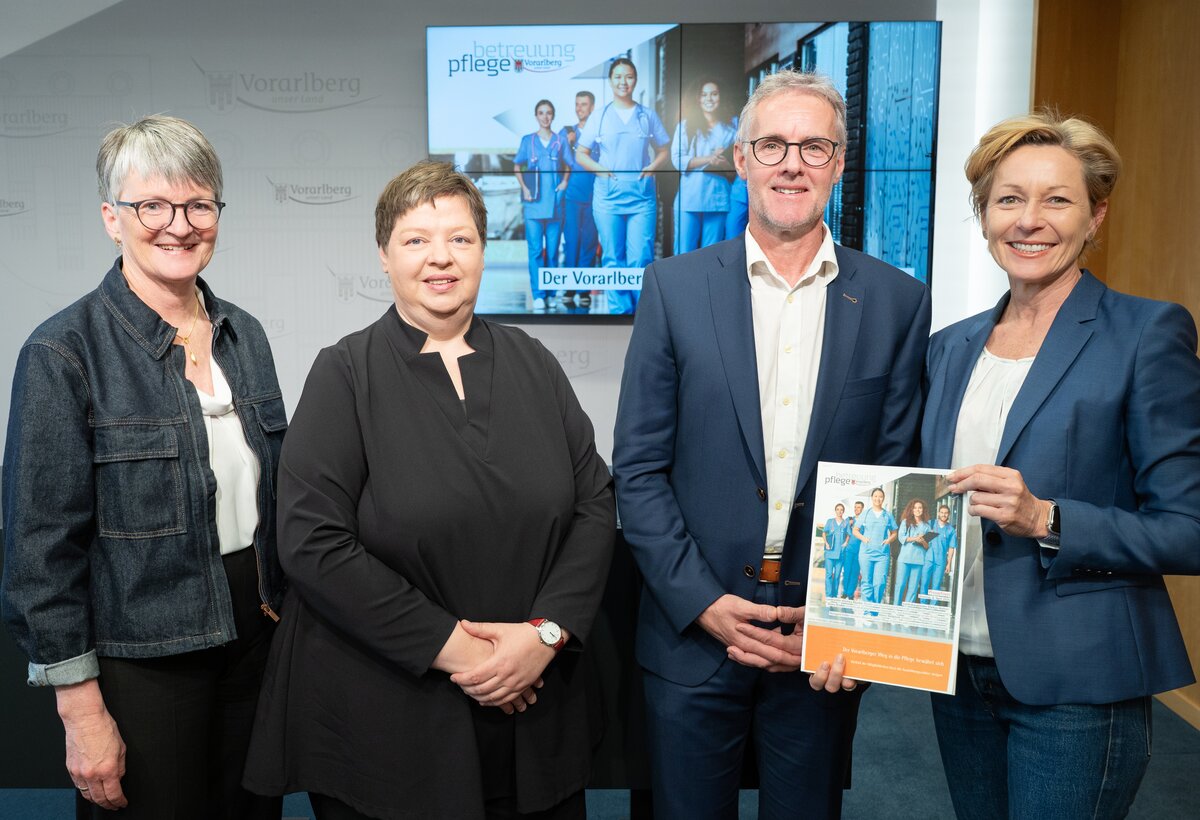Designing a future worth living
25.11.2024Julia Ilg is now completing a Master's degree in Sustainable Energy Systems. The 23-year-old from Dornbirn talks about her path to a technical degree, Energy as a networked system and the FHV as a career springboard.
An education in Engineering and Technology promises the best career opportunities. Graduates are sought-after specialists on the job market. Where did your interest in studying in this field come from?
Julia Ilg: I graduated from the Bludenz Tourism School. Until I started my studies, I didn't have any strong knowledge of scientific subjects or mathematics. My interest in Engineering and Technology was sparked by my subsequent work in our family business "EnergieWerk Ilg". We deal with renewable energy supply there. I learned a lot at work in a short space of time and wanted to specialize my knowledge with a degree. When I discovered the "Environment and Engineering" bachelor's degree programme on the FHV website, I knew it was the right thing for me.
After six semesters, you are one of the first graduates of the degree programme. How would you sum it up?
Julia Ilg: The focus was on environmental engineering and resource management. I was able to deal intensively with the contexts and backgrounds. The knowledge I learned is very future-oriented and flows into my daily work. During my studies, I worked in the family business and started my own business. I work as an auditor in the field of climate and environmental technology for the European Biochar Certification seal of approval. I want to build on what I have learned, which is why I have decided to do a Master's degree.
You received the "Climate Education Award" from the KLIMACENT platform for your thesis. What does that mean to you?
Julia Ilg: Receiving the Climate Education Award for my bachelor's thesis is a special recognition for me and shows me that my work is noticed and appreciated. It motivates me to continue my commitment and make even more people aware of the topic of innovation and climate protection.
You are now studying "Sustainable Energy Systems" part-time at the FHV. How is this course designed?
Julia Ilg: We deal with the entire energy industry chain and with natural resources such as wood, sun, water and wind as well as the distribution of Energy in systems and grids. The focus is on optimization and efficient design in the energy industry. It is not just about the underlying Engineering and Technology, but about the overall understanding. Namely, that Energy is a networked system and that we need to pay particular attention to this. Because by taking appropriate measures, we can achieve the climate targets and thus shape a future worth living.
What are the advantages of studying at the FHV?
Julia Ilg: I didn't have to move away from Vorarlberg to study and can study what I'm really interested in here. I also find it exciting that the FHV also conducts intensive research into Energy. The Energy research center with the illwerke vkw endowed professorship enables the transfer of the latest findings into teaching. We benefit from this as students. We have the opportunity to use the laboratories 24/7 and build up a network during our studies by completing work placements at companies, taking part in excursions or exchanging ideas with guest lecturers. Many students write their bachelor's thesis in cooperation with a company. For many, the course was a career springboard.
You didn't have to leave Vorarlberg for your studies, but you can still gain experience abroad?
Julia Ilg: Numerous students have taken the opportunity to spend a semester abroad at one of the FHV's 110 partner universities. The FHV is also part of the RUN-EU university alliance. This offers the possibility of short stays abroad of one week at a European partner university on interdisciplinary topics. On the other hand, so-called Short Advanced Programmes with international students and lecturers also take place at the FHV, enabling students to build up a global network.
Would you also like to contribute to a future worth living? Then find out more about the FHV bachelor's and master's degree programmes with a focus on sustainability here.








